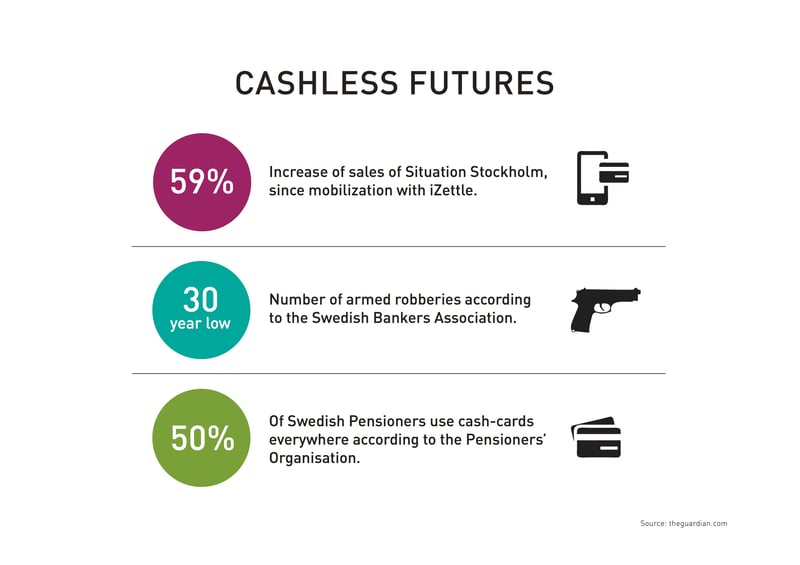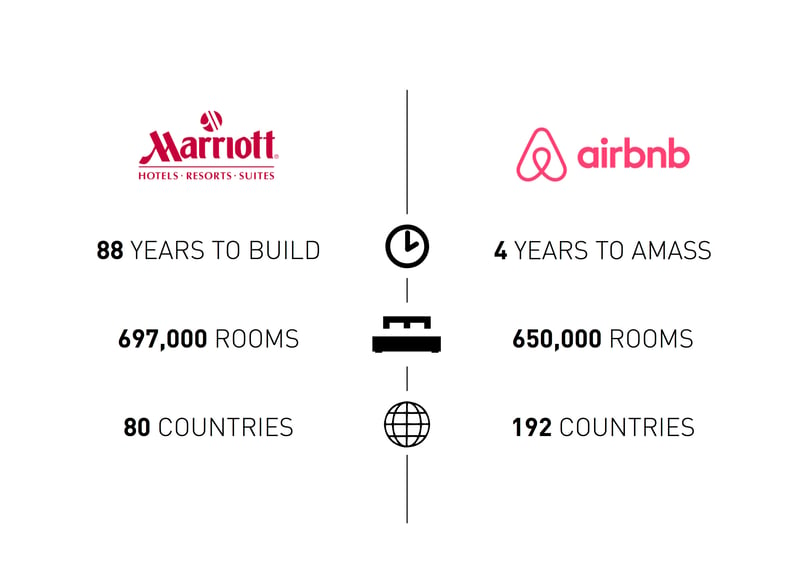Foresights and ideas that expand minds and inspire a change of heart.
In the middle of march 2015 I was invited to keynote at the 2015 Digital Marketing Forum which was organized by Richmond Events and the conference took place in the enchantingly beautiful city of Oxford in England.
I was invited to be the futurist in residence and keynote speaker. During the event I talked about the following three digital trends that will be impacting marketing into the future:
In part 1 of this blog post series I will address the first digital trend. It is the idea that we're now living in a post-digitally-disrupted society. Many organizations are thinking about digitization as if it's something that's going to happen in the future to our business models but I believe we're actually already there, or rather have already been there. The future is now. We have moved beyond digital disruption and we are now in a post-digital-disrupted society where the important thing for digital marketers is to understand that digitization is not only changing which channels we are communicating through but it is also driving entirely new business models. This is the twist to the digitization game.

Deloitte released this report a couple of years back, called The Short Fuse / Big Bang Theory of Digital Disruption. On the x-axis in the graph above you have the length of time until digital disruption impacts your industry. And, on the y-axis you have the size of the impact either - rather contained - or rather massive up the top. You might see your industry along the lines here. But the reality is, this report was released in 2012. The time is zero to five years. Digital disruption is most likely something that's impacted you already. And through consumerization of course, we're shifting the way we take in information. We all know the story, right, of what happened to the record industry or the music industry? Where essentially, that industry through digitization taking something physical and making it digital essentially evaporated the value of the physical for the digital. Digital revenues just haven't replaced the analogue. In fact, this industry has been swapping analogue dollars for digital pennies. Very good business model isn't it? But, of course, this doesn't mean that smart organizations cannot tune into the digital environment by changing the business model and moving from a product to a service, just like Spotify.
Spotify can now give us the soundtrack of our lives and by following our friend's playlists, by curating and giving us advice on music we might like based on our particular personalized preferences we get our own personalized little DJ's playing songs to us.

The role of cash has changed in today's post-digital-disrupted society. Cash used to be king, but in the future, of course it's not going to be. One of the countries in the world that is at the forefront of this change is Sweden - it's actually the most cashless society in the world. An organization that has been highly affected by this change is the Swedish street magazine Situation Stockholm which is sold by homeless people in Stockholm, Sweden. They found out that the sales of their magazine were decreasing significantly and first they could not figure out why. It was not because people didn't want to support the cause or that they didn't find the content intriguing, it was because they weren't carrying cash. To solve this problem Situation Stockholm adopted the mobile payment service iZettle and after this technology adoption the sales increased with 59%. Other interesting facts about Sweden that tells us that it's on the way to become a cashless society is that the number of armed robberies is currently at a 30 year low and that 50% of Swedish pensioners use cash-cards everywhere.

Sometimes I get really worried about today's young generation in this post-digital-disruption society. Why? Because if you're born after 1994 you tend to not know a world without the internet. According to AVG Technologies, more two to five year olds in the Western world today know how to play Angry Birds on their iPhone's than actually know how to tie their shoelaces. If you thought that the Millennials, or Generation Y, were a little bit weird. How weird is this next generation? For them, a product brochure on the floor is simply an iPad that doesn't work. They are born digital. They speak technology without an accent. These are your consumers tomorrow. And the question is whether your customer journeys, your digital touch points are supportive of that generation as well as the baby boomers who might struggle with digitization.

The beautiful thing about digital is that it leaves digital footprints as well. Of course, it's not just about digital marketing but the very business models are shifting in the digital world as well. For example, it took Marriott, the largest hotel group in the world, 88 years to build 697,000 rooms across 80 countries. How long did it take Airbnb to get to nearly the same level? Now, think about the brand experience of Airbnb. They don't own any inventory. Is that a little bit dangerous in terms of brand consistency? Our engagement with them is highly digitized. But then, when we check-in via Airbnb in New York, London, Stockholm, wherever it happens to be, the experience tends to be pretty good anywhere. And Airbnb is happy to kind of just let go of the brand experience. They've digitized a beautifully built a platform, a community of trust and respect where the experience is still one where they will win, both, digital minds and analog hearts as well. For further reading about Airbnb read this blog post and watch this future trendspots video about digital travel disruption.
Bill Gates said in the 1990s that in the future, everybody will still need banking but we will no longer need banks. Nowadays, we can exchange our money, our pounds for Euros, via TransferWise. We can get our personal loans on Zopa, Lending Club. We can make payments via PayPal instead. And, increasingly, people are using technology, financial technology providers, which are now building a layer on top of the banking infrastructure and thus taking the primary interface away from the banks. This freaks our banking clients out because they're starting to lose the primary relationship with the customer. And if you are a marketer or have a marketer's mindset you understand that it is very important to own the customer relationship.
And again before I finish part 1 of this blog post series I want to emphasize that it is critical for marketers and business leaders to understand that we are living in a post-digital disruption society where the digitization is not only changing marketing but also creating entirely new business models.
Don't forget to read part 2 and 3 of this blog post series on three digital trends that will be impacting marketing into the future. In the third blog post we will offer you readers the key slides from my presentation free of charge so make sure you revisit this blog.

Header Text
Lorem ipsum dolor sit amet, consectetur adipiscing elit, sed do eiusmod tempor incididunt ut labore et dolore magna aliqua. Ut enim ad minim veniam, quis nostrud exercitation ullamco laboris nisi ut aliquip ex ea commodo consequat. Duis aute irure dolor in reprehenderit in voluptate velit esse cillum dolore eu fugiat nulla pariatur.
Lorem ipsum dolor sit amet, consectetur adipiscing elit, sed do eiusmod tempor incididunt ut labore et dolore magna aliqua. Ut enim ad minim veniam, quis nostrud exercitation ullamco laboris nisi ut aliquip ex ea commodo consequat. Duis aute irure dolor in reprehenderit in voluptate velit esse cillum dolore eu fugiat nulla pariatur.
Lorem ipsum dolor sit amet, consectetur adipiscing elit, sed do eiusmod tempor incididunt ut labore et dolore magna aliqua. Ut enim ad minim veniam, quis nostrud exercitation ullamco laboris nisi ut aliquip ex ea commodo consequat. Duis aute irure dolor in reprehenderit in voluptate velit esse cillum dolore eu fugiat nulla pariatur.

Header Text
Lorem ipsum dolor sit amet, consectetur adipiscing elit, sed do eiusmod tempor incididunt ut labore et dolore magna aliqua. Ut enim ad minim veniam, quis nostrud exercitation ullamco laboris nisi ut aliquip ex ea commodo consequat. Duis aute irure dolor in reprehenderit in voluptate velit esse cillum dolore eu fugiat nulla pariatur.
Lorem ipsum dolor sit amet, consectetur adipiscing elit, sed do eiusmod tempor incididunt ut labore et dolore magna aliqua. Ut enim ad minim veniam, quis nostrud exercitation ullamco laboris nisi ut aliquip ex ea commodo consequat. Duis aute irure dolor in reprehenderit in voluptate velit esse cillum dolore eu fugiat nulla pariatur.
Lorem ipsum dolor sit amet, consectetur adipiscing elit, sed do eiusmod tempor incididunt ut labore et dolore magna aliqua. Ut enim ad minim veniam, quis nostrud exercitation ullamco laboris nisi ut aliquip ex ea commodo consequat. Duis aute irure dolor in reprehenderit in voluptate velit esse cillum dolore eu fugiat nulla pariatur.

Header Text
Lorem ipsum dolor sit amet, consectetur adipiscing elit, sed do eiusmod tempor incididunt ut labore et dolore magna aliqua. Ut enim ad minim veniam, quis nostrud exercitation ullamco laboris nisi ut aliquip ex ea commodo consequat. Duis aute irure dolor in reprehenderit in voluptate velit esse cillum dolore eu fugiat nulla pariatur.
Lorem ipsum dolor sit amet, consectetur adipiscing elit, sed do eiusmod tempor incididunt ut labore et dolore magna aliqua. Ut enim ad minim veniam, quis nostrud exercitation ullamco laboris nisi ut aliquip ex ea commodo consequat. Duis aute irure dolor in reprehenderit in voluptate velit esse cillum dolore eu fugiat nulla pariatur.
Lorem ipsum dolor sit amet, consectetur adipiscing elit, sed do eiusmod tempor incididunt ut labore et dolore magna aliqua. Ut enim ad minim veniam, quis nostrud exercitation ullamco laboris nisi ut aliquip ex ea commodo consequat. Duis aute irure dolor in reprehenderit in voluptate velit esse cillum dolore eu fugiat nulla pariatur.
& STAY UP TO DATE WITH FORESIGHTS AND TREND REPORTS!
WE WILL EQUIP YOU WITH THE VIDEOS AND MATERIALS YOU NEED TO SUCCESSFULLY PITCH ASN.
0 Comment